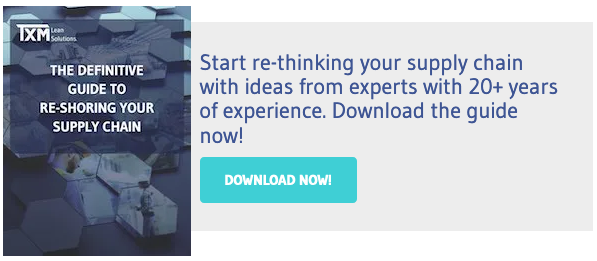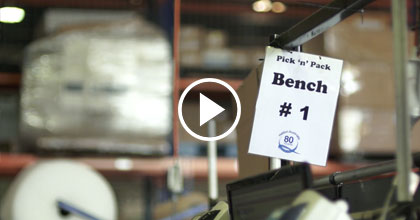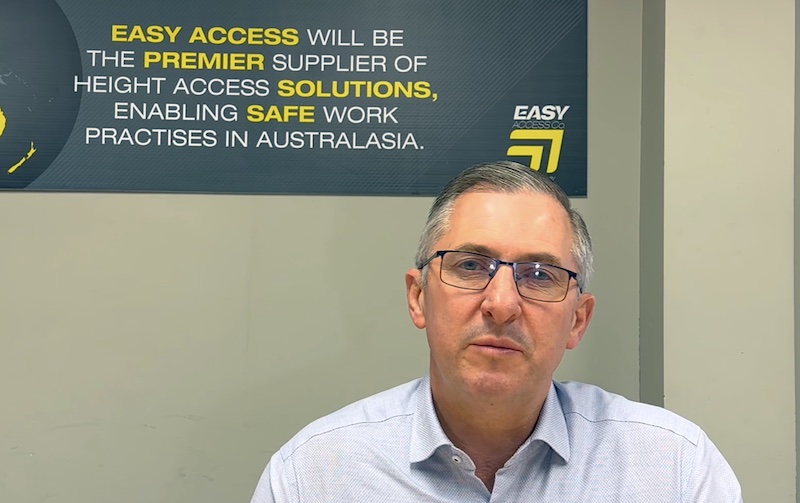By Timothy McLean, author of “On Time in Full: Achieving Perfect Delivery with Lean Thinking in Purchasing, Supply Chain and Production Planning”
Building a competitive and reliable supply chain is a critical success factor for any manufacturing business. This is especially true today, where we face constant volatility and disruption across global supply chains. In this environment, effective supply chain leadership is more critical than ever. So, what makes a great supply chain manager?

What is a Supply Chain Manager?
To be able to hire a great supply chain manager, you first have to know what that title actually means for your business. Over the years I have come across many individuals carrying the title supply chain manager who were focused on only part of the role. Often supply chain managers are really procurement managers, warehousing and logistics managers, distribution managers, manufacturing managers or supply chain systems and planning managers.
In fact, the whole point of having a person called supply chain manager is so that they can oversee the whole end to end supply chain from your suppliers, through every step of your manufacturing and distribution network to your customer’s door. The aim is to get your supply chain working as an integrated whole to deliver outstanding value to customers and shareholders. A supply chain manager that is focused on one aspect of the supply chain is likely to optimise that function at the expense of the performance of the whole chain. Therefore, the first step in hiring a great supply chain manager is defining the role correctly.
TXM Article: What is Lean Supply Chain Management
What Skills Does a Supply Chain Manager Need?
Given that we have defined the supply chain manager’s role broadly, they need to have a broad understanding of the overall supply chain. While their career pathway may have been through manufacturing, logistics, finance or procurement, the supply chain manager needs to bring to the role a broad understanding of each element of the supply chain. In particular, they need to understand the connections between different parts of the supply chain.
For example, they need to understand why purchasing from the absolutely cheapest supplier may not be the overall lowest cost option to the business when supply chain risk and responsiveness to market change is considered. Likewise, they may need to see why smaller more agile manufacturing units located close to customers might be preferrable than one big capital-intensive plant designed to “maximise efficiency”.
They will understand how your company interacts with its suppliers can have a profound impact on your cost of sourcing. A skilled supply chain manager can really add value by applying their understanding of the connections and interactions between different elements of the supply chain from your suppliers’ suppliers through to your customers’ distribution network.
To help see these interactions a good supply chain manager needs to understand Lean thinking. While it is not new, Lean is the most widely accepted and proven methodology to understand and improve the supply chain. A good supply chain manager will understand the extended value stream of his business. This means mapping the flow of value from suppliers through to the final customer and highlighting the areas or greatest opportunity to reduce waste and cost and increase customer value.
The management of large amounts of data and extracting useful information from that data is an ever more important aspect of supply chain management. Your supply chain manager does not need to be your Enterprise Resource Planning (ERP) system “super user” but they really do need a deep understanding how the technology used in your supply chain works. They need to be up to date with trends in supply chain technology, particularly around the use of “big data” and automation.
This skill will enable them to ensure that your business makes the right investments in technology and gets value for money from that investment. It is very easy to be over-awed by technology and seduced by slick sales pitches and futuristic visions. A good supply chain manager will have the understanding to see past all this and select the right level of technology with the right technology partners to serve your business now and in the future.
It’s a Leadership Role So You Need a Leader
The career path of many supply chain managers often has them developing as technical specialists before they reach the more general supply chain role. Often, they have little experience of managing a team and are most comfortable working on their own solving some technical challenge, implementing the latest software or negotiating deals with suppliers.
However, supply chain management is a critical leadership role in your business. Unless your business is very small and wants to stay that way, your supply chain manager will need to develop and lead a team of specialists. Therefore, the individual needs to have strong interpersonal skills, clear values and professional standards and excellent communication skills.
Beyond managing their team, the supply chain manager will need to interact with many eternal organisations including suppliers, carriers, technology vendors and warehouse landlords. Therefore, excellent negotiation and communication skills are essential. They need to be prepared to listen to and understand the perspectives of all supply chain stakeholders including those from other culture and countries. But they also be able to clearly communicate their vision for the organisation and set and maintain high standards of performance.
TXM Article: The Top 6 Ways to Engage Suppliers to Improve Your Supply Chain
Summary
As you will gather by now, the role of the Supply Chain Manager is a demanding one, particularly in complex industries such as electronics or aerospace. Successful recruitment starts with clearly defining the role and then having the patience to search for the right person to fit that role. A common trap is to put too much importance on “industry experience”. When you put in a requirement like “must have at least 10 years experience working in the electronics industry”, you greatly reduce the potential candidate pool.
In fact, the supply chain for almost every discrete manufacturing industry has significant similarities to the electronics supply chain and candidates in those industries will develop similar skills and experience. Therefore, a supply chain manager with 10 years making medical devices or tractors may have a better overall skill set than the best candidate you can find from your own industry.
Likewise, the regulatory environment in pharmaceuticals has similar characteristics to that in aerospace, and so a defence contractor should not necessarily rule out a great candidate from the pharma industry. The reality is, your business and supply chain will be unique, and the new person (if an external hire) will need to learn all this, regardless of whether they have specific industry experience or not.
For those looking for a career in supply chain management, look to expose yourself to different parts of the organisation. Stepping from transactional buying, to category management, to strategic procurement and on to supply chain management might seem like a logical pathway, but it will give you a very narrow perspective on the role. Better to look for horizontal steps into operations, logistics, sales or planning to give you a more holistic understanding of the whole value stream and also give you the leadership skills you will need.
Supply chain qualifications abound, however a good graduate degree such as engineering or accounting will give you the analytical skills you need and provide that valuable broader perspective. Good experience is then often more valuable than further qualifications, although some education in Lean thinking and supply chain courses such as those offered by APICs will not go to waste. Remember a good supply chain manager needs to be able to see and understand the big picture. You can then hire people to be the technical specialists.
About the Author: Tim McLean is co-founder and Managing Director of TXM Lean Solutions, global Lean and operational excellence consultants headquartered in Melbourne, Australia and with offices in North America, Europe and China. Prior to establishing TXM, Tim worked for 16 years as a manufacturing and supply chain manager with major companies including Hoechst AG, PPG and Amcor. Tim is the author of two books, “On Time In Full: Achieving Perfect Delivery with Lean Thinking in Purchasing, Supply Chain and Production Planning” and “Grow Your Factory Grow Your Profit: Lean for Small and Medium Sized Manufacturing Enterprises”, both published in the US by Productivity Press.






